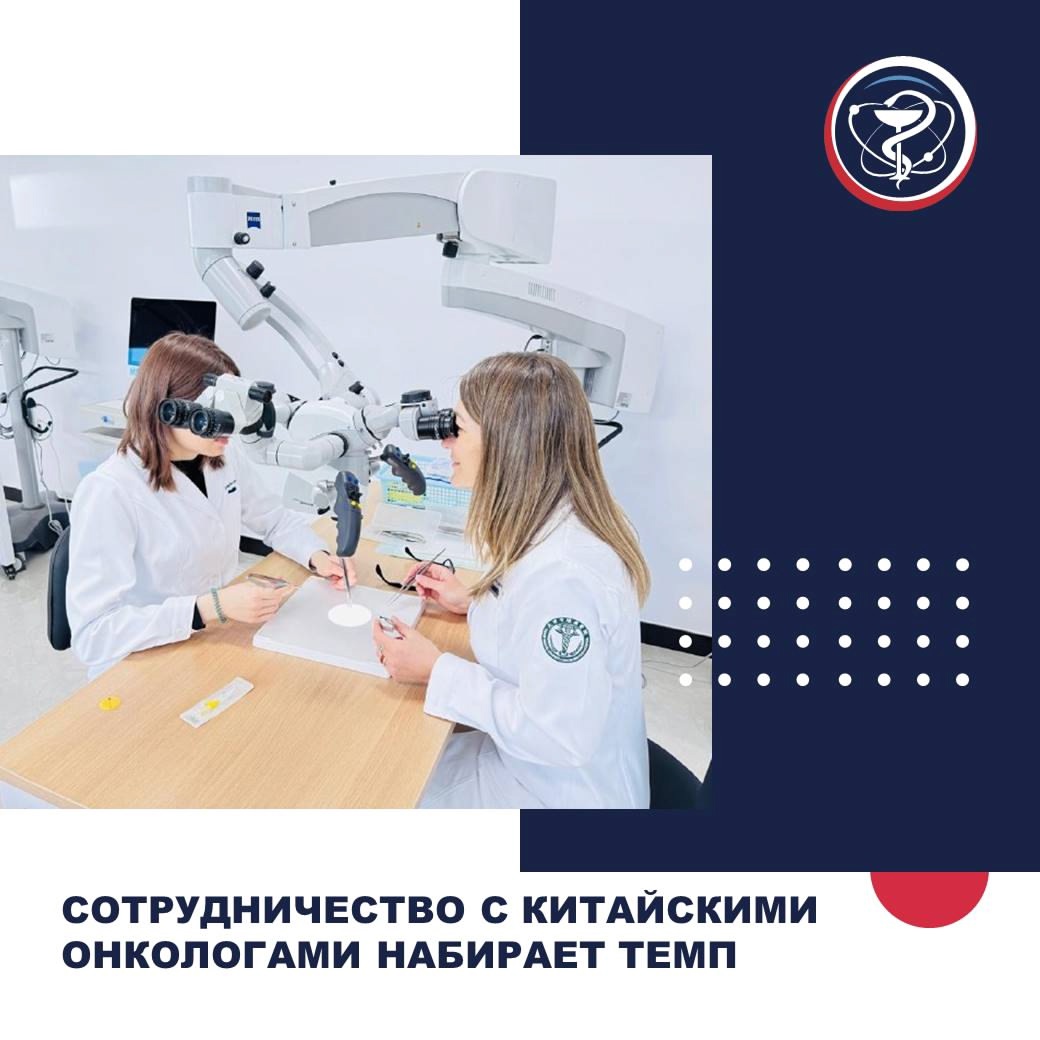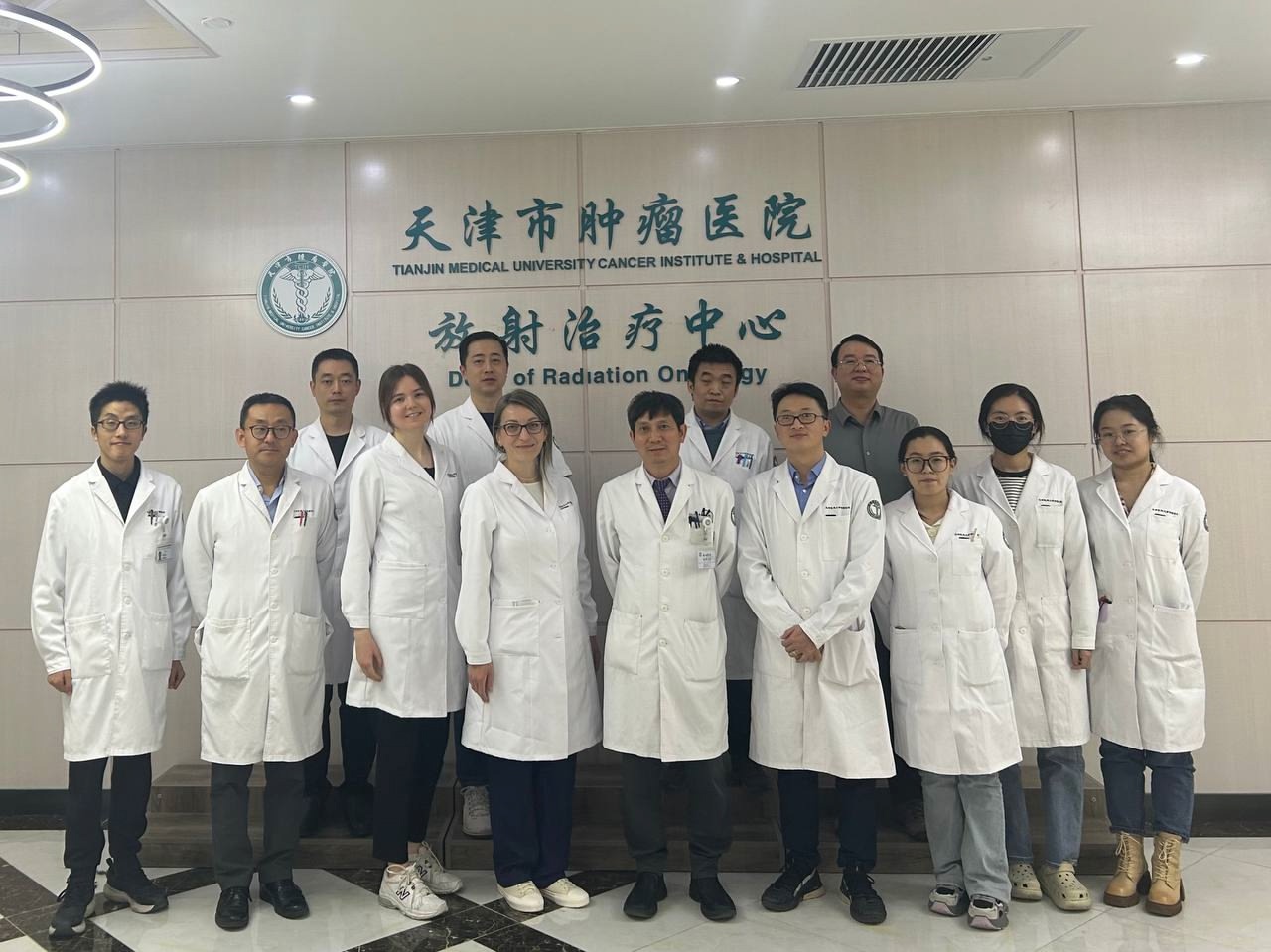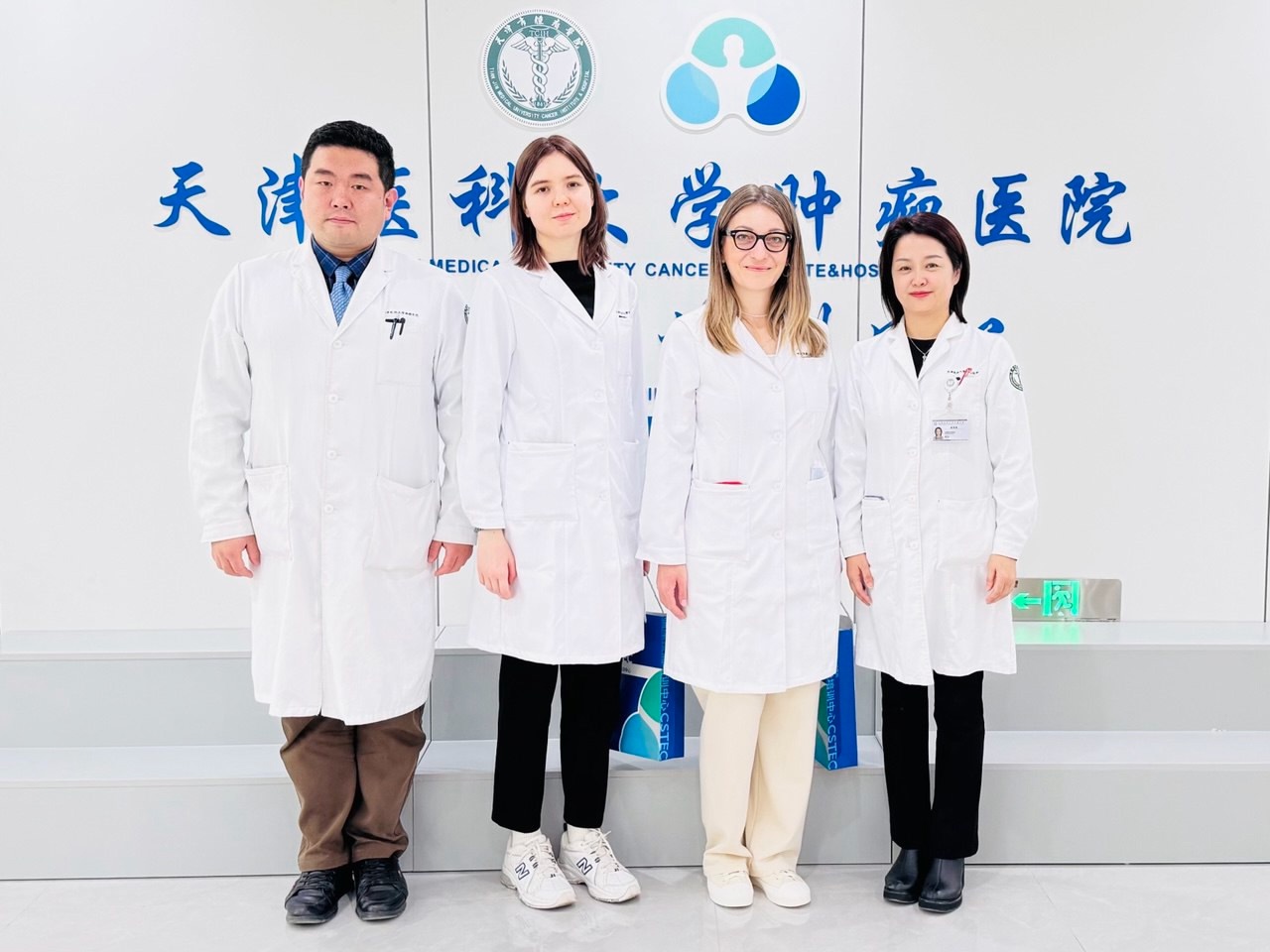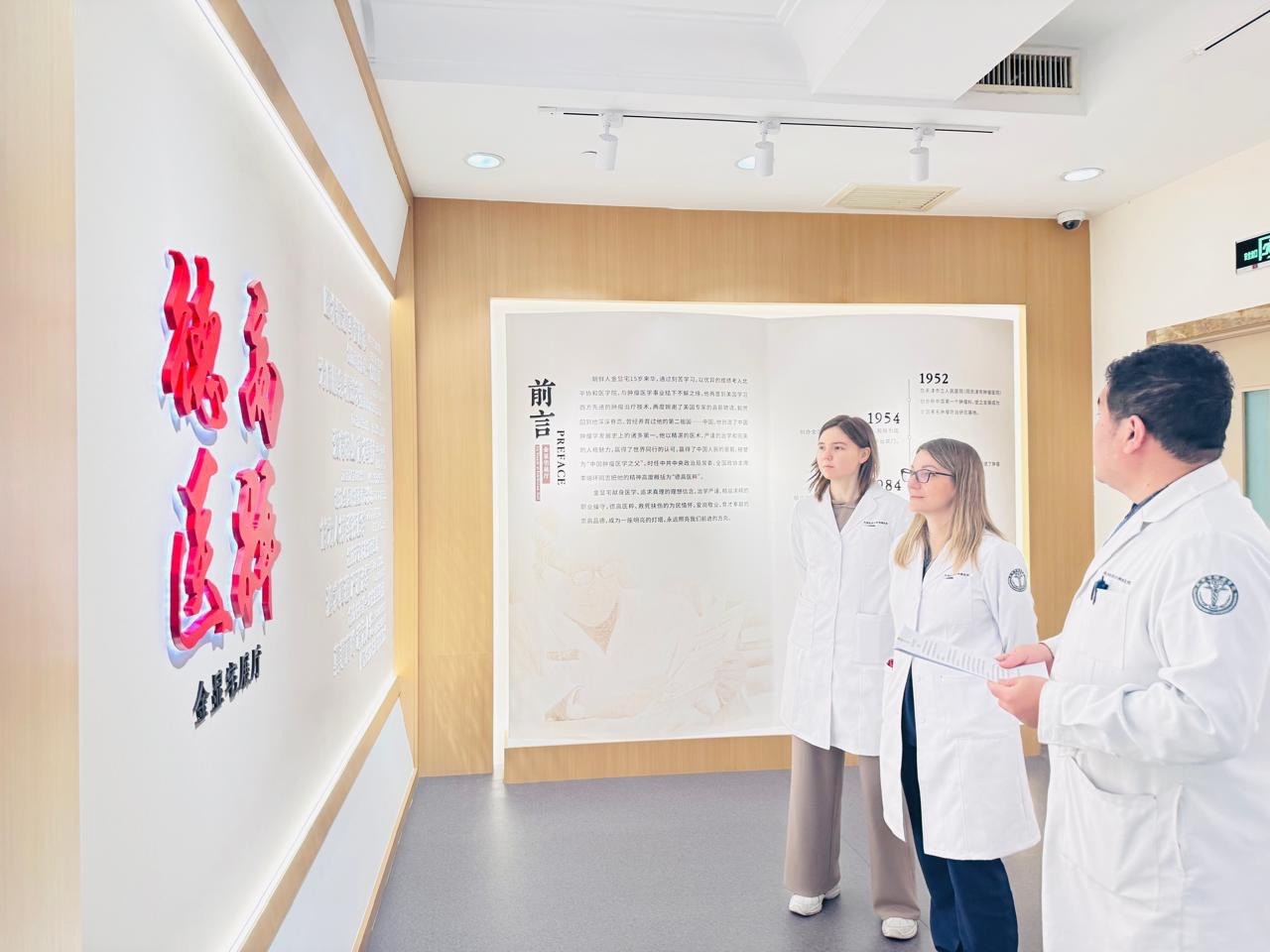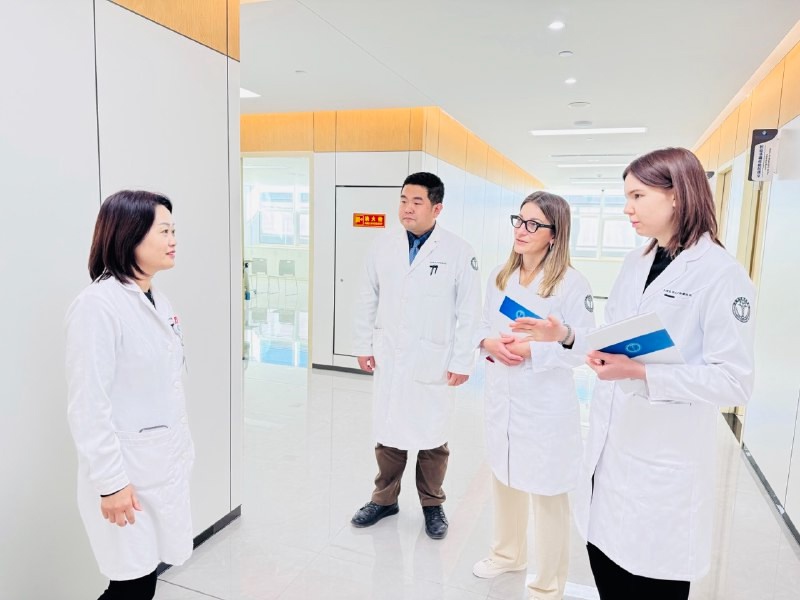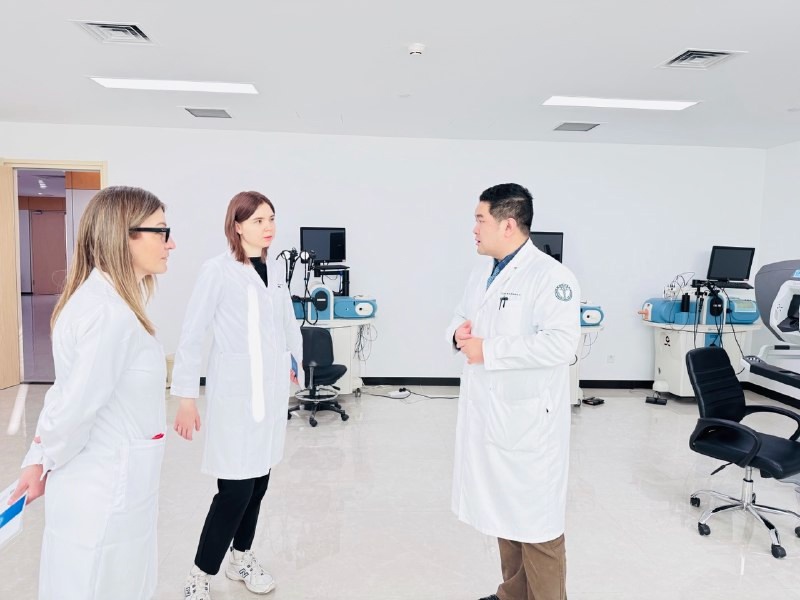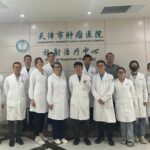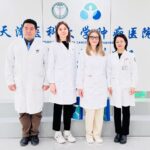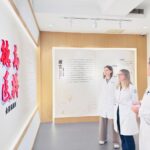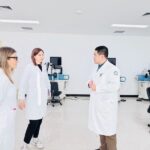CO-OPERATION WITH CHINESE ONCOLOGISTS GATHERS PACE
Recently, radiotherapists from the P. Hertsen MORI have returned from their training at the Tianjin Medical University Cancer Institute and Hospital. The exchange of knowledge, clinical and scientific experience between oncological centres of Russia and China became possible due to the development of cooperation between the two countries.
During the two weeks spent in the Department of Radiation Therapy of the Tianjin Cancer Institute and Hospital, Olga Titova and Sofia Almeteva discussed with their Chinese colleagues the peculiarities of radiotherapy treatment of tumours of different localisations, exchanged experience and outlined prospects for further cooperation.
‘We were very impressed by the volume of care provided in the radiation department of the Oncological Institute, up to 800 people a day, says Olga Anatolievna. This is possible due to the large number of devices only 12 linear accelerators! The work of specialists at each stage of planning and treatment is clearly distributed, and despite the very large flow of patients, the department functions as a single fine-tuned mechanism’.
“Cyberknife treats not only brain tumours, Sofia adds, but also lung, liver, pancreas, bone metastases. In case of recurrence of glioblastoma in Tianjin, they do not use second and subsequent chemotherapy, but prefer their own method of treatment with alternating electric fields, approved by the FDA (U.S. Food and Drug Administration)”.
For brachytherapy, specialists at the Tianjin Cancer Institute and Hospital use 3D models as a fixation matrix (focal grid), and for each patient it is individually made and the model is updated once a week (adaptive radiotherapy). However, all types of oncological care, including radiation therapy, are paid for by patients. Insurance companies can reimburse up to 60 per cent of the cost, but not for all treatments.
In addition to the work of the radiation therapy department itself, our specialists were introduced to Tianjin Medical University and the history of the Cancer Institute and Hospital. Recently, a scientific building with laboratories of fundamental medicine and the Centre for Practical Skills Training was built on the territory of this medical institution, where not only doctors of different specialties, but also nurses and operators of linear accelerators and CT/MR simulators can undergo training. Co-operation between oncologists from the two countries continues to gain momentum.


